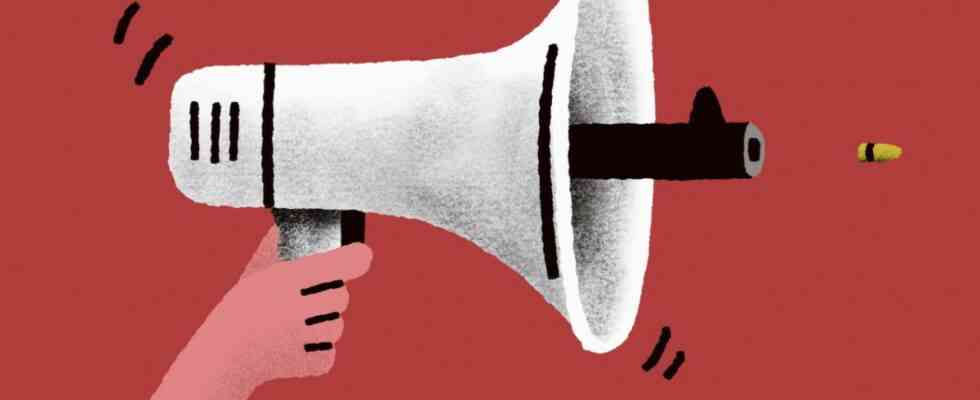The world’s know-it-alls have discovered the Internet as a megaphone. There they roar out their certainties, peck out each other’s eyes and provoke disgust in the silent readers. The rule of thumb of these ideologically colored constant battles is apparently: The more crazy a statement is, the more pronounced the certainty with which it is represented.
In the political realm, of course, this poses an immense problem – the concrete heads of both camps bang their skulls together and kick up a lot of dust that clouds the debates. The philosopher Karl Popper once went so far as to describe this propensity for certainty as a fundamental component of totalitarianism: Anyone who believes their own worldview to be the only way to a happy future with absolute certainty can use it to justify heinous acts and label opponents as evil and vile label or put down immediately.
Now, neither camp has a monopoly on totalitarian tendencies and delusions, rather both ends of the political spectrum are equally vulnerable. The psychologists Thomas Costello and Shauna Bowes have just published a study that traces aspects of this phenomenon. Towards the extreme ends of the political spectrum, the level of perceived certainty that one’s opinions are absolutely correct, like them, increases in the journal Social Psychological and Personality Science to report. Among left and right zealots, every third of those questioned believed that their own worldview was 100 percent correct and perfectly described reality. Among the moderates in the so-called political centre, on the other hand, only one in 15 respondents was blessed with the gift of an absolutely objective view of what was happening.
Political opponents always diagnose a lack of intelligence on the other side
Corresponding results have just been published by psychologists led by Rachel Hartman in another study. Accordingly, supporters of the two major US parties consider the voters on the opposite side to be less immoral or even evil than, above all, stupid. It is a lack of intelligence that drives members of the political opposition to their views. This attitude is also dripping with self-confidence: We know the only truth, so everyone who thinks differently must be as stupid as bread. It’s logical.
Almost all people tend to overestimate themselves in some or even many things. Education, driving skills, housework, morality and virtue – in these and other fields, the majority likes to issue a selfie certificate with above-average grades. The psychological research literature on everyday hubris is bulging. At the extreme echelons of the political arena, overconfidence simply soars to particular heights.
Both left and right radical currents attract people who are similar in their psychological characteristics. They are similar in their dogmatism, their self-assurance, their irrationality and their rigid thinking. The current study can also be interpreted as an argument for the so-called horseshoe theory. According to this concept, left-wing and right-wing extremists are often amazingly close to each other in many positions or dispositions and, on the other hand, maintain a greater distance from the moderate political center. The kindest people who understand Putin are to be found, for example, among those on the far right and far left.

